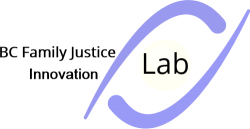BCLI seeks your views on complex stratas

by Kevin Zakreski
Staff Lawyer & Corporate Secretary
The British Columbia Law Institute wants to hear from you about its proposals to reform the Strata Property Act.
With the help of a volunteer project committee, BCLI is carrying out a multi-year project on strata-property law. The committee has just released its Consultation Paper on Complex Stratas (PDF).
Strata-property law started out as a way to encourage the development of high-density residential housing. Over time, stratas became increasingly complex. They have become more architecturally varied, incorporating different building styles. For example, a single strata development may have an apartment tower, surrounded by townhouses and other low-rise buildings. More and more, stratas are also combining different uses. It’s become common to see mixed-use stratas with retail and commercial uses on the lower floors and residential uses above.
These complex stratas have many benefits. They create variety in the marketplace. They support amenities that owners enjoy. And they advance urban-planning goals.
But complex stratas also create some problems. The bulk of these problems center on money.
It’s expensive to develop a large, sophisticated strata property. If it had to be done all in one go, only the biggest real-estate developers would be able to do it. And once a complex strata is up and running, the owners of strata lots being used for different purposes often have different ideas about how to spend the strata’s money and how to operate the strata. For example, commercial owners might need things like extra trash pickups and security patrols that don’t benefit residential owners. The residential owners may wonder why they should have to contribute to paying for these services.
The Strata Property Act uses three devices to manage these problems. These three devices are sections, types, and phases. They are at the heart of the consultation paper.
Sections and types allow a strata corporation to manage cost sharing between groups of owners, while phases permit the development of a strata property in segments over an extended time. Sections, types, and phases all entered the law in the 1970s. They haven’t been comprehensively reviewed since that time.
The committee considered some bold ideas to reform the law. It debated abolishing sections and greatly expanding the role of types. It looked at fundamentally changing the government oversight that attaches to phases.
In the end, the committee decided to not to propose bold changes. It proposes keeping the current framework, but with some significant fine tuning.
The consultation paper has 68 tentative recommendations for reform, including:
- 29 tentative recommendations on sections, which propose clarifying the procedures for creating and cancelling sections, spelling out section powers and duties, and strengthening section governance, budgets, and finances;
- 14 tentative recommendations on types, which propose clarifying the procedures for creating and cancelling types and fine-tuning the operation of types; and
- 25 tentative recommendations on phases, which propose enhancing the oversight of the phasing process, simplifying governance in a phased strata corporation, and providing additional protections for the financial interests of owners in a phased strata property.
The committee would like to hear your thoughts on all 68 of its proposals. But if you would rather just focus on the big picture, then you may be interested in the summary consultation. It has just three highlighted proposals for comment.
You can find the full consultation paper, the summary consultation, and instructions on how to participate in the consultation on Strata Property Law Project—Phase Two webpage.
 By Kari Boyle
By Kari Boyle
